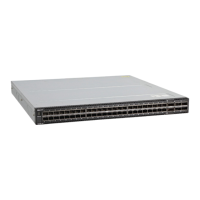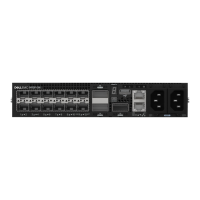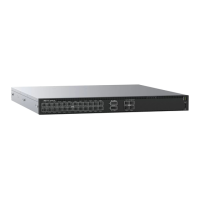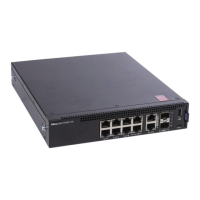Rack mount safety considerations
• Rack loading—Overloading or uneven loading of racks may result in shelf or rack failure,
possibly damaging the equipment and causing personal injury. Stabilize racks in a
permanent location before loading begins. Mount the components starting at the
bottom of the rack, then work to the top. Do not exceed your rack’s load rating.
• Power considerations—Connect only to the power source specied on the unit. When
you install multiple electrical components in a rack, ensure that the total component
power ratings do not exceed the circuit capabilities. Overloaded power sources and
extension cables present re and shock hazards.
• Elevated ambient temperature—If you install the switch in a closed rack assembly, the
operating temperature of the rack environment may be greater than the room ambient
temperature. Use care not to exceed the 45°C (113°F) maximum ambient temperature
of the switch.
• Reduced airow—Do not compromise the amount of airow needed for safe operation
of the equipment. Install the equipment in the rack so that the equipment constantly
has the correct amount of airow surrounding it.
• Reliable earthing—Maintain reliable earthing of rack-mounted equipment. Pay particular
attention to the supply connections other than the direct connections to the branch
circuit, for example; use of power strips.
• Do not mount the equipment with the fan panel facing in the downward position.
Chassis installation and removal
1 Align the chassis with the rails and slide the chassis into the rack.
2 Tighten the screws on each side of the chassis’s front panel, items 1 and 2.
To remove the chassis from the rack, loosen the screws and slide the chassis out of the
rack.
S5200F-ON Series switch Installation
31
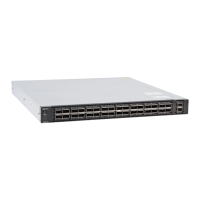
